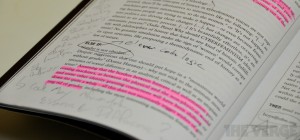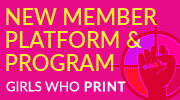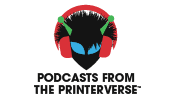Sorry PMC readers! Im a bit behind on postings after going to PODi’s AppForum last week (which was awesome btw) and speaking at the Paper Distribution Council’s conference the week before that (awesome as well!). Luckily, Chris Harrold, VP Business Development Digital Papers at Mohawk (mohawkmakeready) sent me this article to share with all of you. PAPER IS A TECHNOLOGY… love that and this is a great read (even if over a computer/tablet screen). Thanks Chris!!

By Dieter Bohn
In the wake of Apple’s announcement of iBooks 2, iBooks Author, and the latest version of iTunes U, I’d like to take a moment to step back and look at the technology they all look to replace: paper. There’s not much of a question that from a business and from an educational standpoint, the textbook industry is ripe for disruption. The high prices of books, the inordinately strong influence of large buyer blocks like the Texas Board of Education, and even simpler issues like how much a paper textbook weighs all speak to a need to rethink how we distribute and interact with academic texts. I look forward to these disruptions and hope they make education easier and more broadly distributed.
Before we get too far along in this discussion, I want to lay my cards out on the table. I am not against ebooks — I believe that their mass use is not only inevitable but will change the ways that we think and learn. I am, however, deeply concerned about ebooks when compared to paper as a technology. Make no mistake, paper is a technology just as much as an LCD screen is, and as a technology it has several important advantages over e-readers that I am loathe to see disappear.
It’s only within the past few years that our gadgets have advanced to the the point where it’s even reasonable to consider devices like the iPad and other e-readers as viable replacements for the traditional paper book. As fast as technology moves, it’s important to remember that previous changes in reading technology took literally centuries to spread. This current change is happening much more rapidly, and we need to think just as rapidly about its repercussions.
So while much of the coverage of yesterday’s announcement focuses on the exciting new ways that e-readers enable students to interact with texts, we should also be sure to give paper books their due. This isn’t a Luddite rant about how gadgets are destroying our inherent humanity and it’s not an ode to the wonderful smell and feel of an old book: it’s a clear-eyed look at how well paper technology has served us for millennia and how we need to be careful in our headlong rush to replace it.
Continues at: Sorry iBooks, paper books still win on specs | The Verge.










